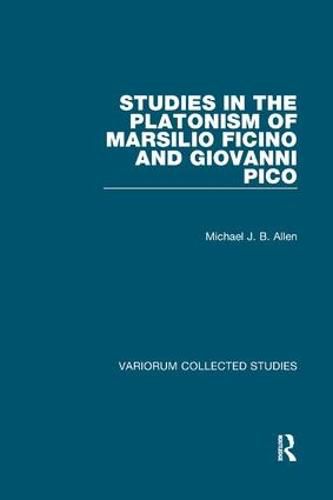Readings Newsletter
Become a Readings Member to make your shopping experience even easier.
Sign in or sign up for free!
You’re not far away from qualifying for FREE standard shipping within Australia
You’ve qualified for FREE standard shipping within Australia
The cart is loading…






Fifteen of these essays by one of the leading authorities on Renaissance Platonism explore the complex philosophical, hermeneutical, and mythological issues addressed by the Florentine, Marsilio Ficino (1433-99). Ficino was the pre-eminent Platonist of his time and a distinguished philosopher, scholar and magus who had an enormous influence on the intellectual and cultural life of two and a half centuries, and who is one of the most important witnesses to the preoccupations of his age, above all to its fascination with ancient poetry and philosophy and their uneasy accommodation as an ancient theology with Christianity. Two further essays treat of cognate themes taken up by Ficino’s younger friend and rival, the dazzling prince of Concordia, Giovanni Pico della Mirandola (1463-94), who was fascinated by Platonism in his youth but also by other philosophical legacies from the past, including Cabala and the Scholastic Aristotelianism of the Middle Ages. This volume’s initial essay serves as an introduction to the comprehensive phenomenon of Renaissance Platonism.
$9.00 standard shipping within Australia
FREE standard shipping within Australia for orders over $100.00
Express & International shipping calculated at checkout
Fifteen of these essays by one of the leading authorities on Renaissance Platonism explore the complex philosophical, hermeneutical, and mythological issues addressed by the Florentine, Marsilio Ficino (1433-99). Ficino was the pre-eminent Platonist of his time and a distinguished philosopher, scholar and magus who had an enormous influence on the intellectual and cultural life of two and a half centuries, and who is one of the most important witnesses to the preoccupations of his age, above all to its fascination with ancient poetry and philosophy and their uneasy accommodation as an ancient theology with Christianity. Two further essays treat of cognate themes taken up by Ficino’s younger friend and rival, the dazzling prince of Concordia, Giovanni Pico della Mirandola (1463-94), who was fascinated by Platonism in his youth but also by other philosophical legacies from the past, including Cabala and the Scholastic Aristotelianism of the Middle Ages. This volume’s initial essay serves as an introduction to the comprehensive phenomenon of Renaissance Platonism.